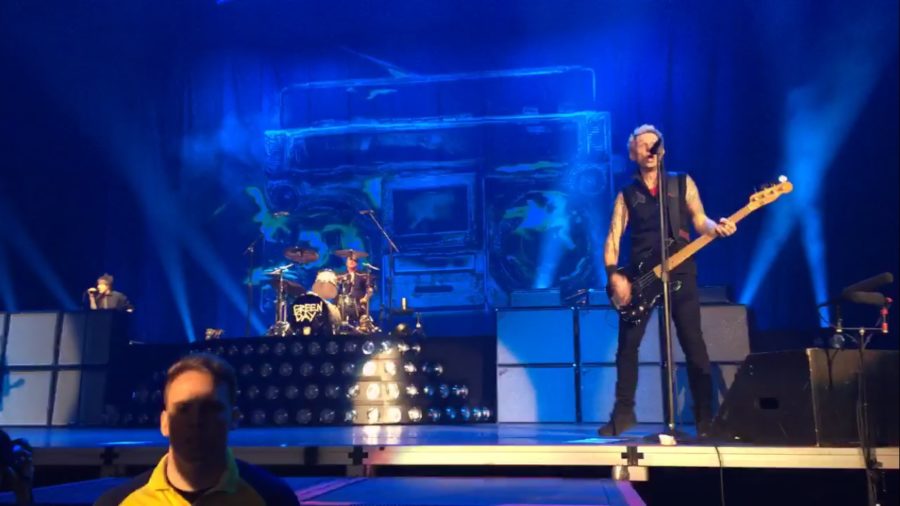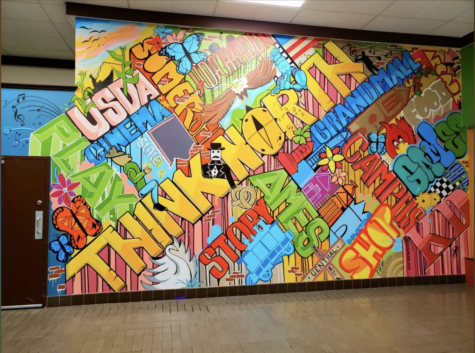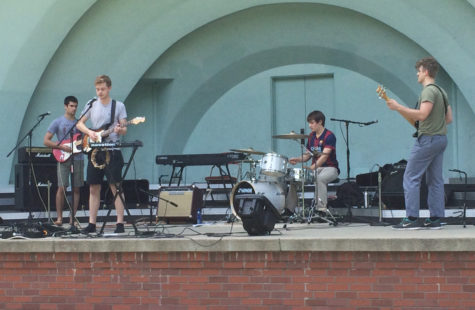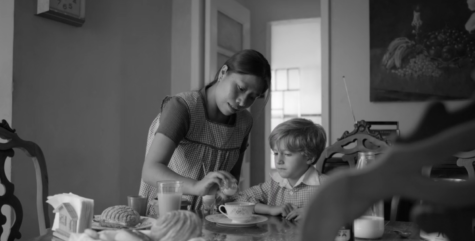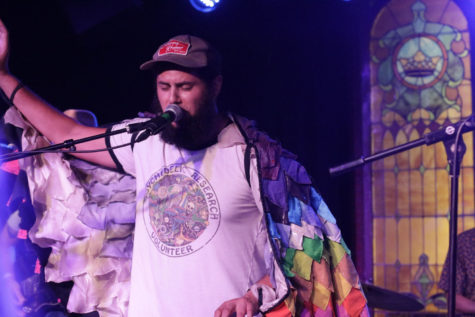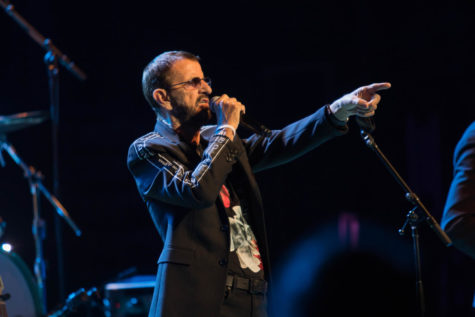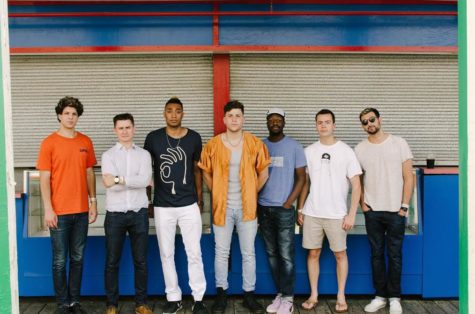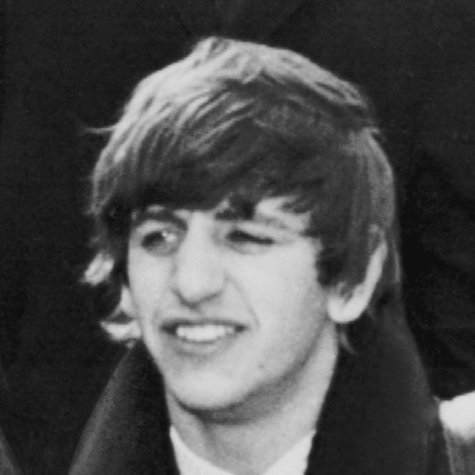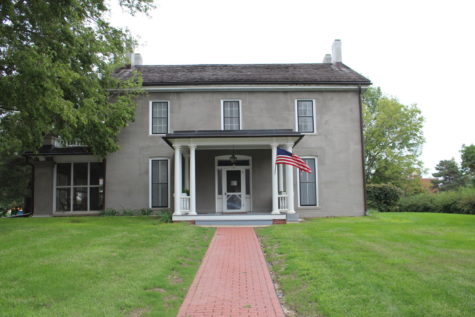- Ames247
- App Content
- App Content / Lifestyle
- Limelight
- Limelight / Music
- Limelight / Music / Des Moines Music
Green Day more than just rocked Wells Fargo Arena
April 4, 2017
Green Day started a revolution and we heard it on the radio, but on Monday night, the punk rock band brought their new album to life during their show at the Wells Fargo Arena in Des Moines.
Green Day has been around since 1986 and has impacted more than one generation of young people. Their arena tour in support of 2016’s “Revolution Radio” is no different.
On Monday, Wells Fargo Arena was packed with Green Day fans of all ages. Frontman Billie Joe Armstrong pulled various audience members on stage including two teenage girls to play drums and guitar, a “twenty-something” guy to sing “Know Your Enemy” and an older woman to sing “Longview.”
The variety of people in attendance speaks to the magnitude of the impact that Green Day has had over the years. Whether it’s a fun song that gets people singing and dancing together or a politically charged song that rallies people behind a common hope for change, there seems to be some kind of “it” factor behind the band’s music.
It must be that factor that engages an audience of thousands of people because the Revolution Radio Tour had relatively little production.
Many arena shows have big screens with eye-popping graphics and endless displays of pyrotechnics. Green Day, however, pulled an incredibly high level of energy from the crowd with only a few banners and limited pyrotechnics.
The show at Wells Fargo Arena was remarkably similar to the shows that Green day played in clubs across the country last fall. They managed to command an audience three to five times larger with nearly the same performance.
Also speaking to the incredible energy that surrounds this band, they played a set that was over two hours long, twice as long as an average headliner.
Powerful punk rock under intense stage lights can be very physically demanding but that wasn’t a problem for Green Day. During the second half of the show, the band decided to lie down on the stage while they performed their cover of The Beatles’ “Hey, Jude.”
This also served as a much-needed break for audience members who had spent over an hour jumping, cheering and singing along at the top of their lungs. The breather was not only functional but also amusing. Several fans in the crowd laughed as the band slowly sank to the floor.
The show included songs from their earliest albums as well as their newest release, Revolution Radio.
The set, however, did not include any songs from the trilogy “Uno,” “Dos” and “Tré.” The trilogy has been poorly received by most Green Day fans and the band seem to agree that the trilogy was not their best work.
Despite the gap in representation of their discography, Green Day played a satisfying variety of songs from their repertoire.
This band may be in the Rock and Roll Hall of Fame, but the music is only a portion of what a Green Day show is all about.
Since the release of 2004’s “American Idiot,” Green Day has had a reputation for being politically outspoken. At any show on the Revolution Radio Tour the audience is likely to get a phrase like the “F— you, Donald Trump!” that they got from Armstrong on Monday night.
Armstrong also makes sure that the audience becomes part of the show. He not only brings a handful of fans on stage throughout the night, but during every song he points to fans and makes eye contact and silly faces.
This is all part of the human experience that Armstrong feels concerts should be. Just a few songs into the show, he stopped what he was doing so that he could tell a woman in the front row that the best way to enjoy a show was not through a phone screen.
“When you’re watching me through your phone screen you’re not looking at me,” Armstrong said.
Overall, the Revolution Radio Tour is a call to what punk rock should be: speaking up for what you believe in, human connection and just plain good music.
Whatever the connection is that people feel to Green Day, their music or other fans, it’s definitely there. It has never faded and it looks like it will be quite a while before it does. An arena that welcomes strangers with a common interest at the start of the night empties itself of people who will be part of each other’s lives forever at the end of the night.
“This is about love… We’re not strangers anymore,” Armstrong said.

